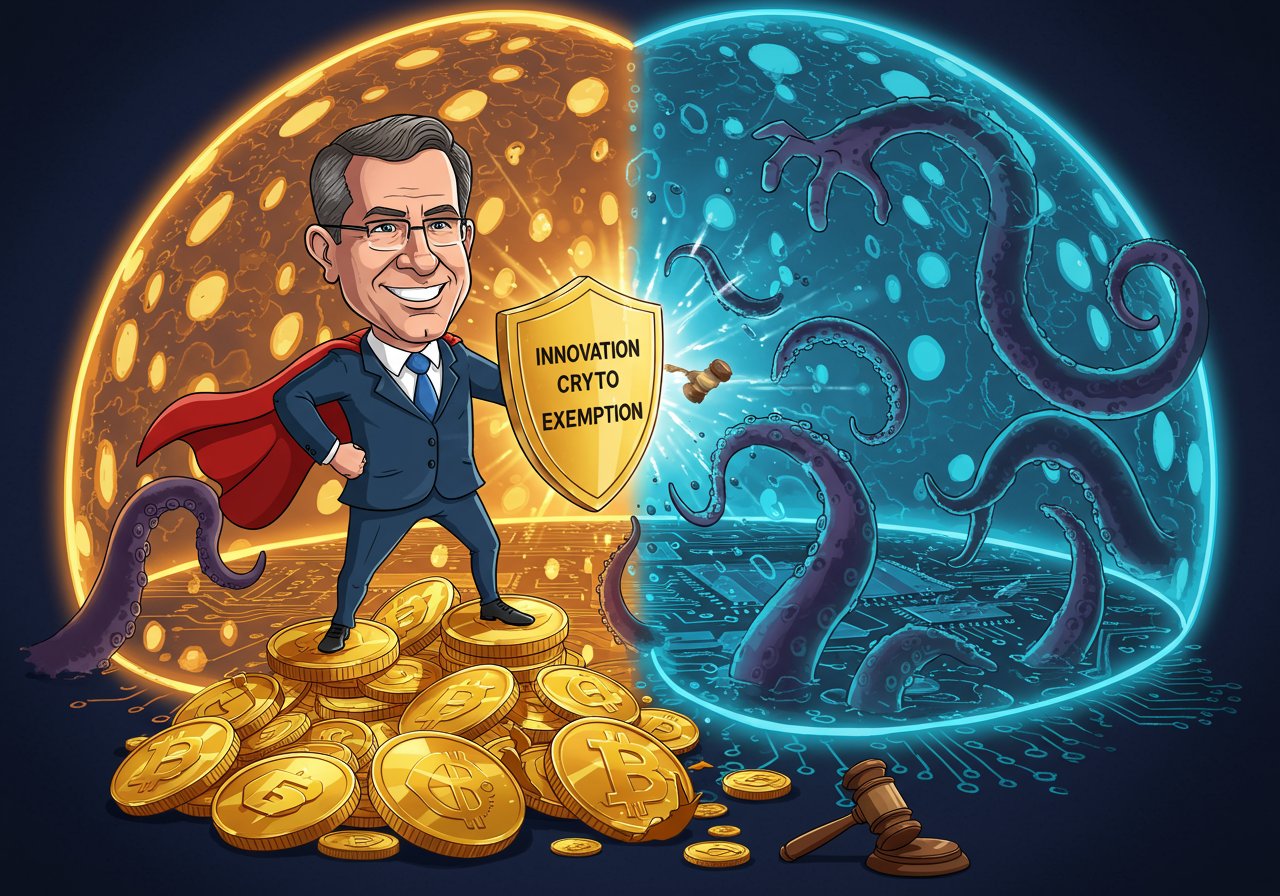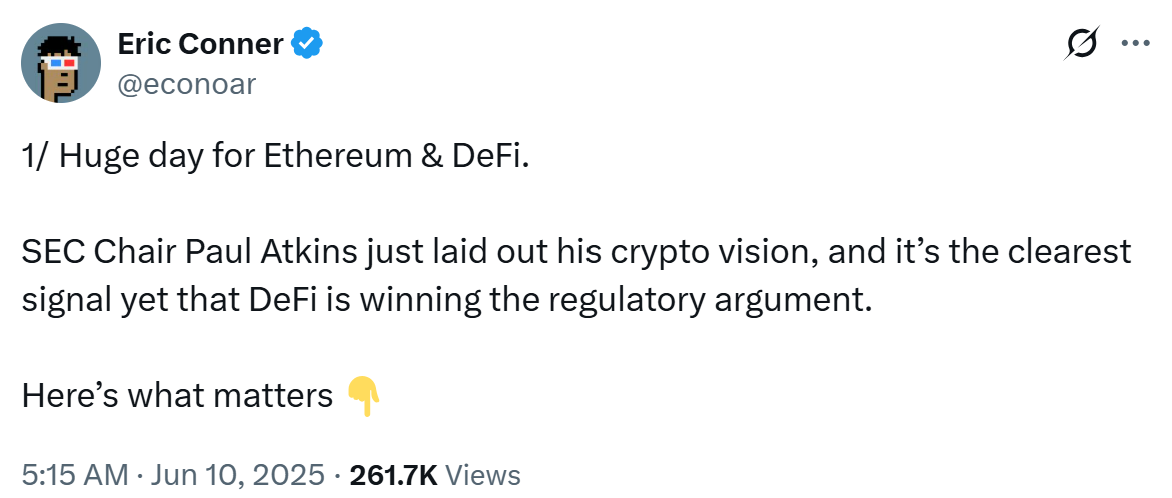
Atkins’ Vision for Tokenization: A New Regulatory Approach?
The Securities and Exchange Commission (SEC) is potentially on the cusp of a significant shift in its approach to crypto regulation. SEC Chair Paul Atkins, in recent comments, revealed the agency is contemplating an ‘innovation exemption‘ to encourage tokenization within the existing regulatory framework. This represents a notable departure from the agency’s traditionally cautious stance, especially when contrasted with the more stringent approach of previous leadership.
The Proposed Innovation Exemption: What Does It Mean?
The specifics of the proposed exemption remain unclear, but the intent is to foster an environment conducive to tokenized securities and novel trading methods. This targeted relief could potentially streamline the process for companies looking to tokenize assets and bring them to market. The move comes as the SEC recognizes the growing inevitability of on-chain asset movement. Atkins was quoted as saying “If it can be tokenized, it will be tokenized.” This suggests a proactive strategy aimed at shaping the future of finance, rather than merely reacting to it.
The GENIUS Act and the Broader Regulatory Landscape
This potential shift also comes in the wake of the GENIUS Act, passed by the US House of Representatives alongside other crypto-related legislation. The GENIUS Act, which awaits presidential approval, promises to provide regulatory clarity for the digital asset market and the stablecoin space. This broader legislative context is crucial, as it sets the stage for how the SEC might implement its innovation exemption. Once the act becomes law, the landscape for crypto businesses will likely become more defined.
Differing Perspectives: Industry Cheers, Concerns Remain
The potential innovation exemption is met with mixed reactions. The crypto industry views the move as a positive sign, with some seeing it as a victory in the regulatory battle. However, some voices within the industry express caution, emphasizing the importance of robust consumer protection. Senator Elizabeth Warren, for example, has voiced concern over the potential for market manipulation and fraud, highlighting the need for comprehensive regulations.
Disclosure and the Future of Crypto
Chair Atkins has emphasized the importance of transparency and disclosure. His approach reflects a desire to facilitate innovation while protecting investors. The intention seems to be striking a balance, avoiding over-regulation that could stifle growth while implementing guidelines that would ensure that market participants are well-informed. This position aligns with the broader debate about whether regulators should embrace or resist the rise of crypto assets.
Stablecoins and the Role of Banking Regulators
In a recent interview, Atkins addressed concerns about stablecoin reserves. He clarified that stablecoins, under the new legislation, are not considered securities and would be overseen by banking regulators. This clarity is a welcome development for the industry, providing a clearer jurisdictional understanding and potentially fostering confidence in stablecoin issuance.
Looking Ahead: What to Watch For
The SEC’s approach to tokenization, especially in the context of the pending legislation, is critical for the future of the crypto market. Market participants and investors should watch closely for details of the proposed innovation exemption and how it is implemented. It is crucial to see if this will translate into tangible benefits for tokenization projects or whether it will remain largely symbolic.



